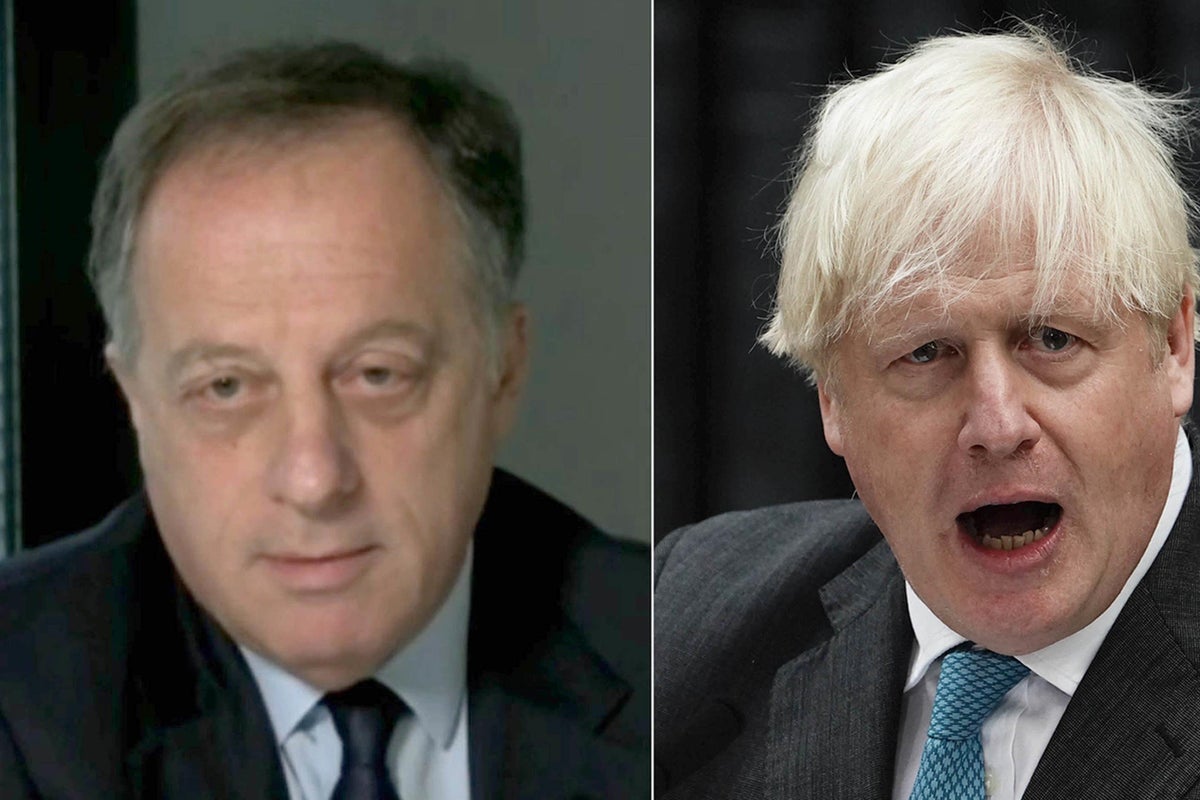
The BBC chairman Richard Sharp was appointed on “merit”, foreign secretary James Cleverly has insisted after claims that the broadcaster’s chief helped arrange talks which led to a £800,000 line of credit for the former PM.
Labour is calling for an investigation into reports that Mr Sharp was involved in talked which led to the huge credit facility weeks before he was recommended for the BBC job by the then-prime minister.
The party has written to Parliamentary Commissioner for Standards following a report in the Sunday Times that Mr Sharp – a Tory donor – introduced multimillionaire Canadian Sam Blyth to the cabinet secretary Simon Case.
Mr Johnson, Mr Sharp and Mr Blyth then had dinner at Chequers before the credit line, guaranteed by the Canadian, was finalised – though they denied the PM’s finances were discussed.
Mr Cleverly described Mr Sharp as “incredibly competent, experienced, thoughtful individual”, telling Sky News’ Sophy Ridge on Sunday: “So, as far as I can see, his appointment was made on those merits.”
Suggesting the BBC appointment was nothing to do with ties to Mr Johnson or the Tories, the foreign secretary added: “We’ve had senior people in the BBC who have political affiliations … so it’s not at all unusual to have [such] individuals in the senior levels of the BBC.”
Mr Cleverly said he did know anything about reported conversations related to a credit line for Mr Johnson, and also told BBC’s Sunday with Laura Kuenssberg that there was “nothing wrong” for someone to be politically active prior to their appointment to senior BBC roles.
Mr Sharp, a former Goldman Sachs banker, was announced as the government’s choice for the BBC role in January 2021, an appointed decided by the culture secretary and prime minister.
A spokesperson for Mr Johnson dismissed the report as “rubbish” and insisted that all his financial arrangements “have been properly declared”.
“Richard Sharp has never given any financial advice to Boris Johnson, nor has Mr Johnson sought any financial advice from him,” the spokesman said.
Of Mr Johnson’s private dinner with Mr Sharp, an old friend, and Mr Blyth, who is a distant relative, the spokesman said: “So what? Big deal.”
Mr Sharp told the Sunday Times: “There is not a conflict when I simply connected, at his request, Mr Blyth with the cabinet secretary and had no further involvement whatsoever.”
But Labour Party chair Anneliese Dodds called for an “urgent investigation” as she cited the MPs’ code of conduct that MPs “should not place themselves under any financial or other obligation to outside individuals or organisations that might influence them in the performance of their official duties”.
She told the new standards commissioner Daniel Greenberg she was concerned that Mr Johnson “may have breached this section by asking for an individual to facilitate a guarantee on a loan whom he would later appoint to a senior public role”.
“The lack of transparency around it, like that of the issue raised around Mr Blyth, may give the impression that this was a quid pro quo arrangement,” she added.
It comes after Labour demanded a probe earlier this week into reports that Mr Johnson used Mr Blyth to act as a guarantor for an £800,000 credit facility. Ms Dodds raised concerns that neither alleged arrangement was properly declared.
She said: “Serious questions need to be asked of Johnson: why has this money never been declared, and what exactly did he promise these very generous friends in return for such lavish loans?”
Labour’s shadow culture secretary Lucy Powell MP has also now written to the Commissioner for Public Appointments, William Shawcross, asking him to investigate the process for appointing Mr Sharp.
Mr Johnson’s sister has suggested that cabinet secretary Simon Case appeared to be central to the then-prime minister’s arrangement of an £800,000 credit facility.
Rachel Johnson denied any knowledge of her brother’s financial affairs, telling the BBC: “I suggest you ask Simon Case, who seems to be the linchpin in both these stories, to come on and say what happened.”
A BBC spokesman said: “The BBC plays no role in the recruitment of the chair and any questions are a matter for the government.”







